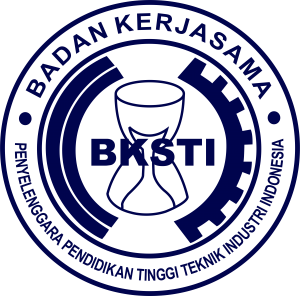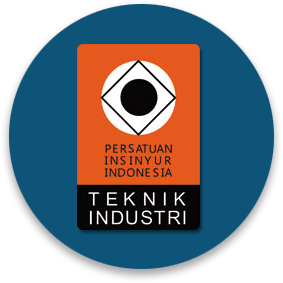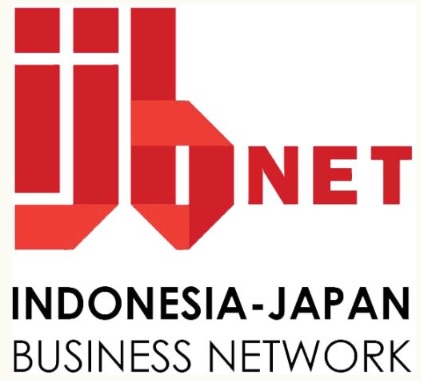Identifikasi Strategi dan Faktor Keberhasilan Perusahaan Startup: Studi Kasus Perusahaan Startup Makanan dan Minuman di Indonesia
Abstract
Every company experiences life cycle stages, where this cycle is identical to the Company's life cycle. There are 5 phases in the company's life cycle, namely the establishment or startup stage, the expansion stage, the maturity stage, and the declining stage. Startup Companies are companies that are in the early stages of operating and developing or have not yet operated. One promising startup sector is a food and beverage company startup. Food and beverage-based startup companies are one of the sectors most targeted by investors even though the global economy is being pressured by the coronavirus outbreak. One of the crucial problems for startup companies is business strategy, this is because startup companies have different characteristics from mature companies such as in decision-making. There are many factors that influence the success of a startup company. Therefore the purpose of this study is to identify the strategies used by food and beverage startup companies and determine the most influential factors in the success of the startup. This research was conducted by structurally interviewing 22 startup companies, then processing the data using AHP (analytical hierarchical process) in determining the level of the most influential success factors. The results show that the most widely used strategy is market penetration of 68% and the level of the factor that has the highest influence on success is the individual factor group of 5,111
Keywords
Full Text:
PDFReferences
Banda, J. & Lussier, R. (2015). Success factors for small businesses in Guanajuato, Mexico. International Journal of Business and Social Science, 6(11), 1-17.
Bednár, I. R., & Tarišková, I. N. (2018). Indicators of startup failure. International Scientific Journal “Industry 4.0,” 5(December 2017), 238–240.
Chorev, S. & Anderson, A. (2006). Success in Israeli high-tech start-ups: Critical factors and process.
Technovation, 26, 162-174.
Dessyana, A., & Dwi Riyanti, B. P. (2017). The Influence of Innovation and Entrepreneurial Self-Efficacy to Digital Startup Success. International Research Journal of Business Studies, 10(1), 57–68. https://doi.org/10.21632/irjbs.10.1.57-68
Ganotakis, P. (2012). Founders’ human capital and the performance of UK new technology based firms.
Small Business Economics, 39, 495-515.
Growth, T. H. E., Of, P., Business, S., The, U., Of, V., & Management, L.
M. (2013). the Growth Performance of Small Business Under the View of Life-Cycle Model. Management Research and Practice, 5(4), 58–67.
Gup, B., & Agrrawal, P. (1996). The Product Life Cycle: A Paradigm for Understanding Financial Management. May.
Hart, M. A. (2012). The Lean Startup: How Today’s Entrepreneurs Use Continuous Innovation to Create Radically Successful Businesses Eric Ries. New York: Crown Business, 2011. 320 pages. US$26.00. In Journal of Product Innovation Management (Vol. 29, Issue 3). https://doi.org/10.1111/j.1540- 5885.2012.00920_2.x
Hormiga, E., Batista-Canino, R. & Sánchez-Medina, A. (2010). The role of intellectual capital in the success of new ventures. International Entrepreneurial Management Journal, 1-22.
Kim, B., Kim, H., & Jeon, Y. (2018). Critical success factors of a design startup business. Sustainability (Switzerland), 10(9), 1–15. https://doi.org/10.3390/su10092981
Morteza, S., Pitts, B., Ehsani, M. & Kordnaeij, A, (2013). The vital factors for small and medium sized sport enterprises start-ups. Asian Social Science, 9(5), 243-253.
Pujianto, A., Utami, W., & Sastrodiharjo, I. (2016). Peran Life Cycle Stage Dalam Memoderasi Hubungan Antara Intellectual Capital Disclosure Dan Nilai Perusahaan. Akuntabilitas, 9(1), 285–304. https://doi.org/10.15408/akt.v9i1.3588
Salamzadeh, A. (2015). Startup Companies- Life Cycle and Challenges Startup Companies : Life Cycle and Challenges Aidin Salamzadeh ( Corresponding author ) Faculty of Entrepreneurship , University of Tehran , 16th Street , North Kargar Hiroko Kawamorita Kesim Faculty of Enginee. 4th International Conference on Employment, Education and Entrepreneurship (EEE), August. https://doi.org/10.13140/RG.2.1.3624.8167
Santisteban, J., & Mauricio, D. (2017). Systematic literature review of critical success factors of Information Technology startups. Academy of Entrepreneurship Journal, 23(2), 1–23.
Song, M., Podoynitsyna, K., Van der Bij, H., & Halman, J. (2008). Success factors in new ventures: A metaanalysis. The Journal of Product Innovation Management, 25, 7-27.
Van Gelderen, M., Thurik, R. & Bosma, N. (2005). Success and risk factors in the prestartup phase
Refbacks
- There are currently no refbacks.
Copyright (c) 2021 Prosiding Seminar Nasional Mercu Buana Conference on Industrial Engineering

This work is licensed under a Creative Commons Attribution-ShareAlike 4.0 International License.
Journal ISSN:
| e-ISSN | |
| 2988-4284 |
Tim Editorial Office
Proceeding Mercu Buana Conference on Industrial Engineering
Program Studi Magister Teknik Industri Universitas Mercu Buana
Jl. Raya Meruya Selatan No. 1 Kembangan Jakarta Barat
Email: [[email protected]]
Website: https://publikasi.mercubuana.ac.id/index.php/mbcie/
The Journal is Indexed and Journal List Title by:
in Collaboration with:








